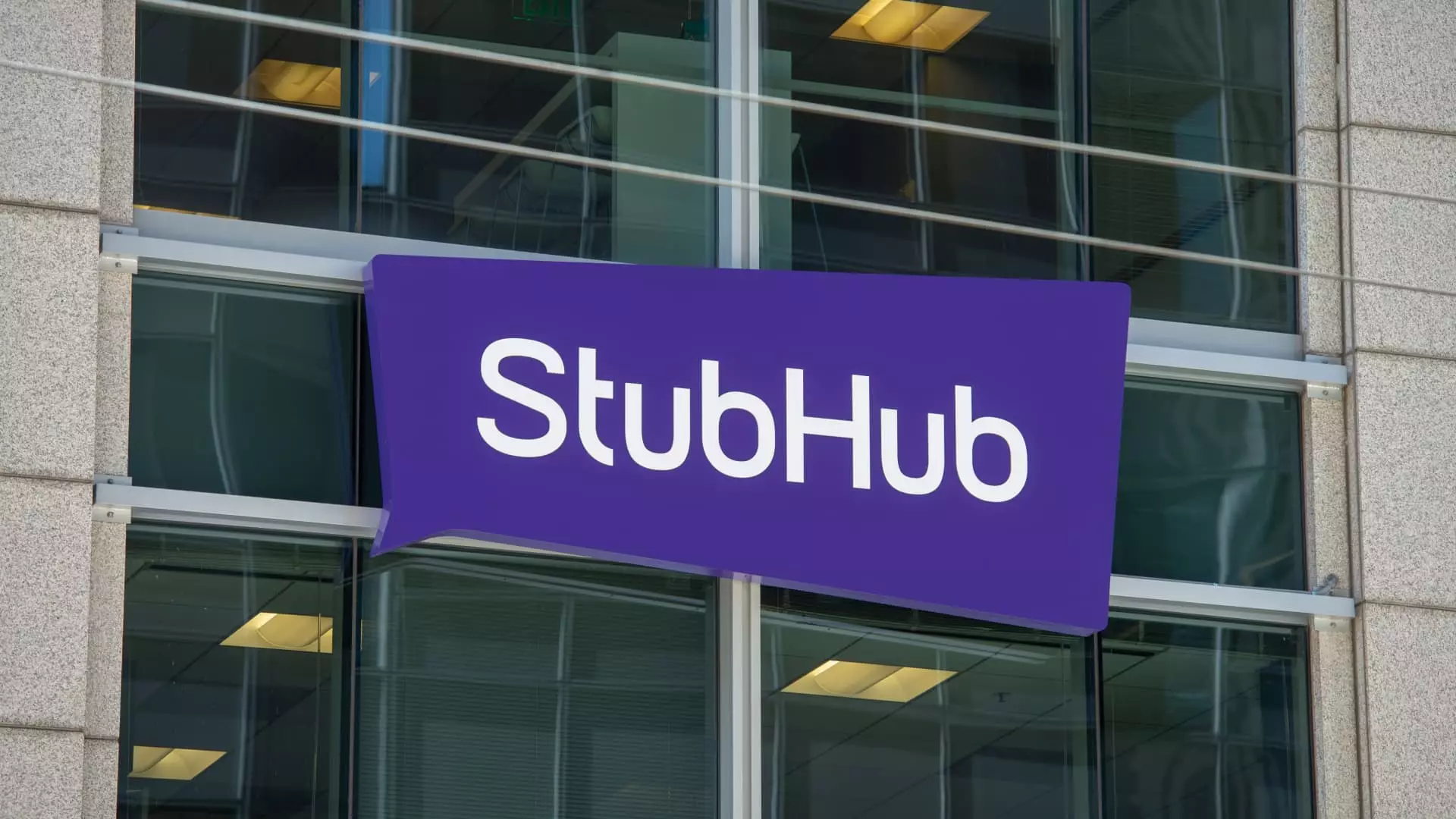The ticketing landscape has always been fraught with challenges and grievances regarding transparency and pricing. Recently, Washington, D.C. Attorney General Brian Schwalb initiated a lawsuit against StubHub, an online ticket exchange platform with a market valuation exceeding $16 billion. Allegations claim that the company misleads consumers by advertising deceptively low ticket prices that fail to reflect the total cost experienced during the checkout process. This legal action is part of a broader wave of criticism around “junk” fees in multiple consumer sectors, from ticketing to airlines, where clarity regarding costs is often obscured.
At the heart of the lawsuit lies StubHub’s alleged use of “drip pricing” tactics, which strategically withhold essential fee information until a later stage in the purchasing process. The argument presented by Schwalb’s office suggests that this tiered pricing structure creates an urgency among buyers, as they race against a countdown clock—an artificial pressure that can lead consumers to complete purchases without fully grasping the final price. Such practices come under severe scrutiny when it is revealed that additional “fulfillment and service fees” substantially inflate purchase totals without clear justification.
This case is particularly significant as it reflects a broader consumer rights issue—ensuring transparency in pricing models. The lawsuit argues that this lack of disclosure has enabled StubHub to alter consumer behavior, compelling buyers to overlook obscured costs in favor of convenience. In testing conditions, StubHub reportedly found that consumers were more likely to complete transactions when additional fees were not disclosed until checkout.
The ramifications of hidden fees extend beyond individual consumers to broader economic implications for areas like Washington, D.C. The Attorney General’s office noted that D.C. residents are particularly affected, as they tend to spend more on live entertainment than those in many other metropolitan areas within the United States. The lawsuit highlighted a specific instance that underscored this issue, showcasing how a pair of tickets advertised at $356 turned out to cost nearly $497 after all hidden fees were included in the final price. This example starkly illustrates how consumers can end up paying significantly more than expected, leading to feelings of betrayal and financial strain.
Additionally, the lawsuit’s assertions that StubHub has generated around $118 million in hidden fees from D.C. consumers alone points to a troubling trend within the ticket-selling industry. This is emblematic of larger market practices that prioritize profit over ethical considerations, posing questions of legality and fairness.
The lawsuit is not an isolated instance; it aligns with a growing discontent among consumers and lawmakers alike regarding unclear pricing policies permeating the ticketing industry. StubHub is not the only entity under the microscope; airlines and other ticket vendors have also faced severe backlash for similar practices. The call for increased scrutiny and regulation in ticket pricing is mounting—a sign that stakeholders can no longer bear the high costs of hidden fees.
Moreover, the timing of StubHub’s impending actions, including a potentially delayed IPO, raises questions about the company’s future and how this legal challenge may impact its operations and public perception. With the ticketing landscape shifting toward transparency and accountability, StubHub might have to adapt quickly or risk long-term damage to its brand.
The ongoing lawsuit against StubHub could serve as a pivotal moment in the fight for consumer rights within the ticketing industry. As more attention is drawn to deceptive pricing strategies, stakeholders must advocate for greater transparency and ethical business practices. If successful, the Attorney General’s office may not only push for change at StubHub but potentially establish a new standard that other ticket sellers will have to follow. This could lead to a marketplace that prioritizes fairness and clarity, reassuring consumers that they are not just numbers but valued clientele deserving of respect and honesty in their purchasing experiences. The outcome of this lawsuit may well set a precedent for how online ticket sales are conducted in the future, encouraging a much-needed shift towards ethical consumerism in the digital age.


Leave a Reply